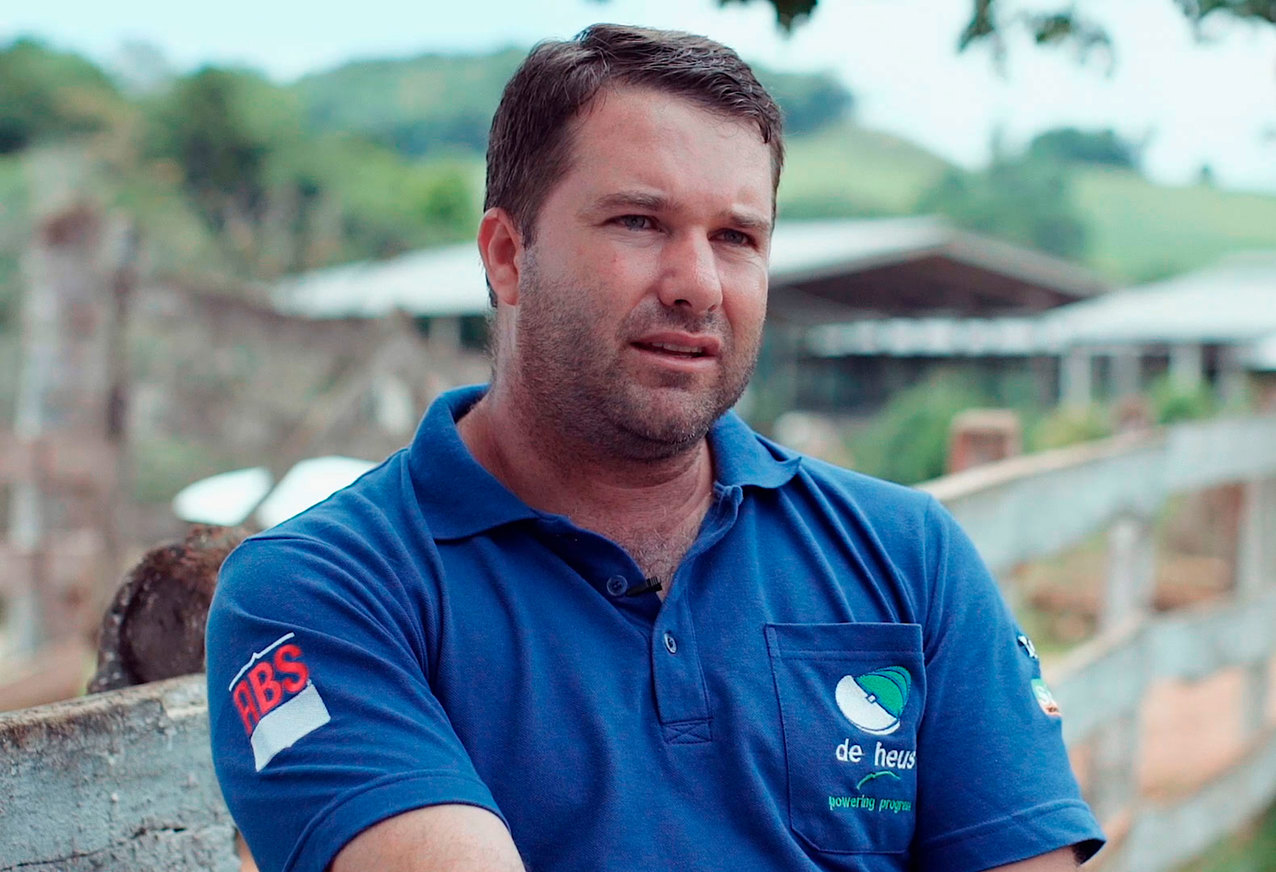After eight years, our farm already produces 2.7 million litres of milk per year
His father and grandfather came from Holland to Brazil and worked in dairy farming when Fernando was still a child. The passion remained and for the past 8 years, he has managed the activities on his farm, Estancia Shalom, with excellent results.

Brasil
Fernando Sleutjes is the third generation of dairy farmers - an activity started by the family in 1950. Located in Piraí do Sul, Paraná, the Estância Shalom farm divides its operations between dairy cattle and agriculture. For the cows, an area of 100 hectares is used with one crop of corn silage and two cuts of oat silage a year. In parallel, there are 70 hectares of corn and soya bean grains.
From 60 lactating cows to 480 animals in the herd
After eight years of keeping Holstein cattle, the farm now produces 2.7 million litres of milk per year. In the beginning, it had 60 lactating cows. Today the herd totals 480: 280 youngstock and 200 lactating cows.
According to Sleutjes, the farm not only focuses on efficient milk production but also on young stock rearing: “To have a good profit in dairy, we target high milk production on calving heifers. A Holstein heifer weighing 570 kg and aged between 23 and 24 months reaches the production we have achieved, between 40 and 45 litres per day, at the peak in the first lactation, achieving high yield in its life.” With 10 employees in total, Fernando has the support of his family to continue the business. “My wife manages all the reproductive programmes on the farm, my son is an agricultural technician and already works on the property. As for the baby, we intend to prepare her to work with the cattle,” he says.
Take a tour on Fernando's farm
Rearing, nutrition and genetics: the basis for excellent results
In order to obtain high production, Estância Shalom uses 'KALIBER® plan, by De Heus, which aims to rearing young animals in a healthy and economical way, using as reference the animal's proportions in terms of length, height and volume. With that, the animal will be well developed, with high production and longevity.
The plan is divided into four phases: start, youth, puberty and pregnancy. Each phase has different nutritional requirements, such as protein, energy, starch, fiber, minerals and vitamins. The rations for each phase are formulated to meet the requirements of the animals and fit with the forages available on the farm.
In an internal farm´s survey, in 2018, primiparous produced on average 10,980 liters of milk in 365 days; in 2019, it reached 11,500 per primiparous; now, in 2020, it is between 12,200 and 12,500 in 365 days: “It is almost five liters more per day, in three years, only with the improvement in heifer rearing, nutrition and genetics. Quality nutrition it is a greatly influence from the results”, says Sleutjes.
Support of the family
My wife manages all the reproductive programmes on the farm, my son is an agricultural technician and already works on the property. As for the baby, we intend to prepare her to work with the cattle,” he says.
Trust and partnership
The partnership between the Estância Shalom farm and De Heus began eight years ago - when the multinational arrived in Brazil and at the same time that the farmer started his dairy farm.
Sleutjes: “Generally, feed companies are most concerned with the lactation phase, which presents more economic values. Other phases like calf rearing and dry cows management tend to be forgotten, despite these having a financial impact on the farm. However, this is precisely what De Heus focuses on, from the birth of a calf to production, and we had significant improvements in the herd. Besides delivering high quality products, De Heus also offers the knowledge to achieve superior results through research that, when put into practice, helps us achieve our farm goals. Today, I receive many farmers and technicians, also from other countries like Bolivia, Uruguay and Argentina, who want to see our results.”








